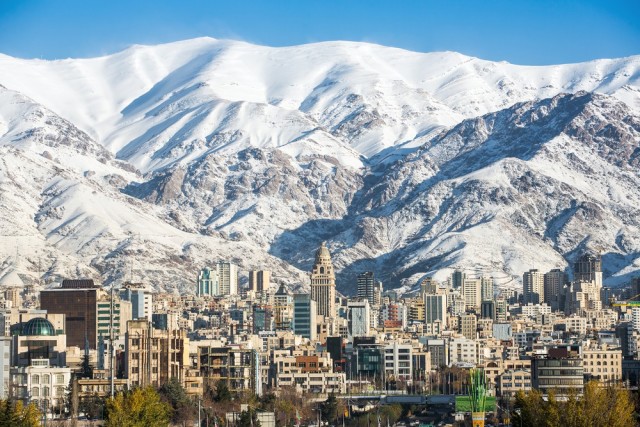IIB Chairman participates in the visit of Slovak delegation to Iran

Chairman of the IIB Board, Nikolay Kosov, was part of a delegation of the Slovak Republic, which included 20 representatives of the country’s business and financial sectors, on an official visit to the Islamic Republic of Iran on March 7-8, 2016. Invitation of the IIB Chairman to participate in the visit reflects the mutual interest of both Slovakia – one of IIB’s most active shareholders, and the IIB to support the foreign expansion of its member states’ companies and to promote international economic integration.
The official visit to Teheran of the Slovak delegation led by the Minister of Economy of the Slovak Republic and the Head of the Slovak delegation in the IIB Council, Vazil Hudak, was already the second this year. The Slovak Minister of Finance, Peter Kazimir, visited the republic at the end of January 2016.
The programme included business and investment forums, which were attended by over 100 representatives of the Iranian business community, as well as a series of meetings with the top management of Iran’s government bodies. IIB Chairman took part, in particular, in the meetings at the Ministry of Finance, Ministry of Industry, Mines and Trade, Ministry of Energy, the Central Bank of Iran and with other state agencies.
Apart from the IIB, the talks were attended by executives of a number of Slovak banks: Tatra banka, ČSOB, Sberbank Slovakia and IIB’s traditional partner – the Export-Import Bank of the Slovak Republic. The Iranian direction could potentially become another popular track for IIB’s cooperation with this particular partner, taking into account Bratislava’s interest to resume the previous business contacts and to re-establish the trade channel with Tehran.
Such options for cooperation with the IIB attracted interest from Iran, particularly given the current geographic scope of the Bank, which represents a dynamic interregional investment bridge. In this sense, the Iranians’ attention was drawn by the Bank's position in Central and Eastern Europe – the sub-region, with which the country’s authorities intend to boost economic cooperation.
